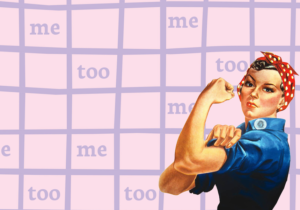
Amongst the claims of this generation’s apparent political apathy it is refreshing to see young people getting involved in politics; or such would be the response that one could hope for. However the reaction from the Quebec government to the student protests in that province, or the response from those in the rest of Canada has been far from sympathetic.
After fourteen weeks of student protests over a proposed seventy-five percent tuition hike, the Quebec legislature has enacted an emergency law (Bill-78) calling for an end to the student movement by imposing severe fines and the threat of criminal sentencing for organizers that fail to comply with the new bill’s provisions.
Such provisions include:
– All organizers for demonstrations of 50 people or more must provide the date, time, duration, and venue of demonstrations eight hours in advance and is subject to approval by the police. Organizers and demonstrators could be held criminally liable for deviating from police-approved parameters.
– Student associations and federations would be required to “employ appropriate means to induce” their members to comply with the law.
– Any demonstrations that could cause interference to the functioning of a college would be banned at all campuses and within a 50-meter radius surrounding them.
– Students in violation of the act could be fined as much as $5000. Organizers and representatives of student groups could be fined as much as $35,000. Organizations in violation of the act could be fined as high as $125,000. All fines would be doubled for repeat offences.
While the consequences of this bill for student demonstrations could very well be dire, my problem with this legislation stems from the implications that it has for the legitimacy of democratic representative government. The Quebec government’s decision to follow through with the legislation targeted at hundreds of thousands of active student protesters is, as Gabriel Nadeau-Dubois, leader of CLASSE student group, says:
“a declaration of war”. The legislation, assuming it is effective, curbs any power that the students have in negotiations by criminalizing their most effective method of resistance, the strike. I would argue that the impact of Bill-78 in Quebec is as devastating to the student movement there as Bill-22 is to the BC Teacher Federation’s job-action here in British Columbia. Whenever a government enacts “back to work legislation” or, in this case, “anti-protest legislation”, it effectively brings an end to negotiations.
The problem these movements have for the legitimacy of democratic governments is as follows. We begin with the assumption that modern liberal democratic governments attain their legitimacy through obtaining the consent of the majority of voting citizens – or the largest minority, as is the case with our current federal government. I would then argue that the vote represents a citizen’s consent to be governed by a given political party for a set number of years. Following an election the government, assuming it has the power to do so as determined by the electoral system, can be said to speak on behalf of those it represents: the “silent majority”. In liberal democratic governments it is not the
demos, or the people, themselves that govern but rather it is more apt to say that our governments require democratic consent but not democratic rule. The strike, however, marks a reversal of the role between those who consent and those who govern.
The demonstration or the strike is an assertion of political equality in a manner by which liberal democracies are not prepared to handle. The Quebec students, through their direct action, have refused to be represented and as such they have thrown into question the very relationship between rulers and ruled which has defined hierarchical governing structures since time immemorial. When the people in a democratic country refuse to merely be the silent majority, that is, when they begin to represent themselves, what does this mean for existing structures of authority? Well in this case, they enact repressive legislation aimed at curbing civil liberties.
The narrative at work in Quebec now is nothing groundbreaking, particularly for those who participate in direct action strategies.
As I mentioned earlier, the passing of Bill-22 earlier this year in British Columbia’s dispute with the BC Teacher’s Federation is a clear example of democratic government’s refusal to accept democratic participation. Furthermore last year’s highly energized Occupy movement generated a flurry of legislation here in British Columbia, as well as in participating cities abroad, to deprive the movement of its source of power, namely, its right to demonstrate.
It is no surprise that commentators are suggesting that what is taking place in Quebec now is an abuse of power. Lucie Lemonde, law professor at Universite du Quebec, stated Friday:
“it’s the worst law that I’ve ever seen, except for the War Measures Act”. If citizens are not allowed the opportunity to voice their collective concerns, then what is left for anyone to do in democratic government? It appears that the role of the democratic citizen is to remain passive for all but one day, every four years, and even then we are entrusted only with checking boxes on a pre-determined ballot. How excited the students of Quebec are, I’m sure, to wait another year for their next provincial election to give consent to a different party to lead; and even then, mind you, they must only hope that there exists another party that takes their stance on this issue, because heaven forbid that democratic citizens be allowed to determine their own policies.
The appropriate course of action, as we seem to be told, is to sit down and voice our concerns with our government in hopes that they may heed our words. In other words, freedom of speech is permitted only insofar as it does not interfere with business as usual, only so long as we do not forget who it is that we put into a position of authority in the last formally recognized election – those of us who voted, that is.
What does democracy even mean? Because while it may be “rule of the people”, I think it would be more accurate to call it “absolute rule of the select people who have convinced enough of the population to consent to their subordination to a political party with a shared ideological agenda that is enforced by a party whip for a given period of time”. That’s a bit wordy.
Photo: Yanik Crépeau
 Amongst the claims of this generation’s apparent political apathy it is refreshing to see young people getting involved in politics; or such would be the response that one could hope for. However the reaction from the Quebec government to the student protests in that province, or the response from those in the rest of Canada has been far from sympathetic. After fourteen weeks of student protests over a proposed seventy-five percent tuition hike, the Quebec legislature has enacted an emergency law (Bill-78) calling for an end to the student movement by imposing severe fines and the threat of criminal sentencing for organizers that fail to comply with the new bill’s provisions.
Such provisions include:
– All organizers for demonstrations of 50 people or more must provide the date, time, duration, and venue of demonstrations eight hours in advance and is subject to approval by the police. Organizers and demonstrators could be held criminally liable for deviating from police-approved parameters.
– Student associations and federations would be required to “employ appropriate means to induce” their members to comply with the law.
– Any demonstrations that could cause interference to the functioning of a college would be banned at all campuses and within a 50-meter radius surrounding them.
– Students in violation of the act could be fined as much as $5000. Organizers and representatives of student groups could be fined as much as $35,000. Organizations in violation of the act could be fined as high as $125,000. All fines would be doubled for repeat offences.
While the consequences of this bill for student demonstrations could very well be dire, my problem with this legislation stems from the implications that it has for the legitimacy of democratic representative government. The Quebec government’s decision to follow through with the legislation targeted at hundreds of thousands of active student protesters is, as Gabriel Nadeau-Dubois, leader of CLASSE student group, says: “a declaration of war”. The legislation, assuming it is effective, curbs any power that the students have in negotiations by criminalizing their most effective method of resistance, the strike. I would argue that the impact of Bill-78 in Quebec is as devastating to the student movement there as Bill-22 is to the BC Teacher Federation’s job-action here in British Columbia. Whenever a government enacts “back to work legislation” or, in this case, “anti-protest legislation”, it effectively brings an end to negotiations.
The problem these movements have for the legitimacy of democratic governments is as follows. We begin with the assumption that modern liberal democratic governments attain their legitimacy through obtaining the consent of the majority of voting citizens – or the largest minority, as is the case with our current federal government. I would then argue that the vote represents a citizen’s consent to be governed by a given political party for a set number of years. Following an election the government, assuming it has the power to do so as determined by the electoral system, can be said to speak on behalf of those it represents: the “silent majority”. In liberal democratic governments it is not the demos, or the people, themselves that govern but rather it is more apt to say that our governments require democratic consent but not democratic rule. The strike, however, marks a reversal of the role between those who consent and those who govern.
The demonstration or the strike is an assertion of political equality in a manner by which liberal democracies are not prepared to handle. The Quebec students, through their direct action, have refused to be represented and as such they have thrown into question the very relationship between rulers and ruled which has defined hierarchical governing structures since time immemorial. When the people in a democratic country refuse to merely be the silent majority, that is, when they begin to represent themselves, what does this mean for existing structures of authority? Well in this case, they enact repressive legislation aimed at curbing civil liberties.
The narrative at work in Quebec now is nothing groundbreaking, particularly for those who participate in direct action strategies. As I mentioned earlier, the passing of Bill-22 earlier this year in British Columbia’s dispute with the BC Teacher’s Federation is a clear example of democratic government’s refusal to accept democratic participation. Furthermore last year’s highly energized Occupy movement generated a flurry of legislation here in British Columbia, as well as in participating cities abroad, to deprive the movement of its source of power, namely, its right to demonstrate.
It is no surprise that commentators are suggesting that what is taking place in Quebec now is an abuse of power. Lucie Lemonde, law professor at Universite du Quebec, stated Friday: “it’s the worst law that I’ve ever seen, except for the War Measures Act”. If citizens are not allowed the opportunity to voice their collective concerns, then what is left for anyone to do in democratic government? It appears that the role of the democratic citizen is to remain passive for all but one day, every four years, and even then we are entrusted only with checking boxes on a pre-determined ballot. How excited the students of Quebec are, I’m sure, to wait another year for their next provincial election to give consent to a different party to lead; and even then, mind you, they must only hope that there exists another party that takes their stance on this issue, because heaven forbid that democratic citizens be allowed to determine their own policies.
The appropriate course of action, as we seem to be told, is to sit down and voice our concerns with our government in hopes that they may heed our words. In other words, freedom of speech is permitted only insofar as it does not interfere with business as usual, only so long as we do not forget who it is that we put into a position of authority in the last formally recognized election – those of us who voted, that is.
What does democracy even mean? Because while it may be “rule of the people”, I think it would be more accurate to call it “absolute rule of the select people who have convinced enough of the population to consent to their subordination to a political party with a shared ideological agenda that is enforced by a party whip for a given period of time”. That’s a bit wordy.
Photo: Yanik Crépeau
Amongst the claims of this generation’s apparent political apathy it is refreshing to see young people getting involved in politics; or such would be the response that one could hope for. However the reaction from the Quebec government to the student protests in that province, or the response from those in the rest of Canada has been far from sympathetic. After fourteen weeks of student protests over a proposed seventy-five percent tuition hike, the Quebec legislature has enacted an emergency law (Bill-78) calling for an end to the student movement by imposing severe fines and the threat of criminal sentencing for organizers that fail to comply with the new bill’s provisions.
Such provisions include:
– All organizers for demonstrations of 50 people or more must provide the date, time, duration, and venue of demonstrations eight hours in advance and is subject to approval by the police. Organizers and demonstrators could be held criminally liable for deviating from police-approved parameters.
– Student associations and federations would be required to “employ appropriate means to induce” their members to comply with the law.
– Any demonstrations that could cause interference to the functioning of a college would be banned at all campuses and within a 50-meter radius surrounding them.
– Students in violation of the act could be fined as much as $5000. Organizers and representatives of student groups could be fined as much as $35,000. Organizations in violation of the act could be fined as high as $125,000. All fines would be doubled for repeat offences.
While the consequences of this bill for student demonstrations could very well be dire, my problem with this legislation stems from the implications that it has for the legitimacy of democratic representative government. The Quebec government’s decision to follow through with the legislation targeted at hundreds of thousands of active student protesters is, as Gabriel Nadeau-Dubois, leader of CLASSE student group, says: “a declaration of war”. The legislation, assuming it is effective, curbs any power that the students have in negotiations by criminalizing their most effective method of resistance, the strike. I would argue that the impact of Bill-78 in Quebec is as devastating to the student movement there as Bill-22 is to the BC Teacher Federation’s job-action here in British Columbia. Whenever a government enacts “back to work legislation” or, in this case, “anti-protest legislation”, it effectively brings an end to negotiations.
The problem these movements have for the legitimacy of democratic governments is as follows. We begin with the assumption that modern liberal democratic governments attain their legitimacy through obtaining the consent of the majority of voting citizens – or the largest minority, as is the case with our current federal government. I would then argue that the vote represents a citizen’s consent to be governed by a given political party for a set number of years. Following an election the government, assuming it has the power to do so as determined by the electoral system, can be said to speak on behalf of those it represents: the “silent majority”. In liberal democratic governments it is not the demos, or the people, themselves that govern but rather it is more apt to say that our governments require democratic consent but not democratic rule. The strike, however, marks a reversal of the role between those who consent and those who govern.
The demonstration or the strike is an assertion of political equality in a manner by which liberal democracies are not prepared to handle. The Quebec students, through their direct action, have refused to be represented and as such they have thrown into question the very relationship between rulers and ruled which has defined hierarchical governing structures since time immemorial. When the people in a democratic country refuse to merely be the silent majority, that is, when they begin to represent themselves, what does this mean for existing structures of authority? Well in this case, they enact repressive legislation aimed at curbing civil liberties.
The narrative at work in Quebec now is nothing groundbreaking, particularly for those who participate in direct action strategies. As I mentioned earlier, the passing of Bill-22 earlier this year in British Columbia’s dispute with the BC Teacher’s Federation is a clear example of democratic government’s refusal to accept democratic participation. Furthermore last year’s highly energized Occupy movement generated a flurry of legislation here in British Columbia, as well as in participating cities abroad, to deprive the movement of its source of power, namely, its right to demonstrate.
It is no surprise that commentators are suggesting that what is taking place in Quebec now is an abuse of power. Lucie Lemonde, law professor at Universite du Quebec, stated Friday: “it’s the worst law that I’ve ever seen, except for the War Measures Act”. If citizens are not allowed the opportunity to voice their collective concerns, then what is left for anyone to do in democratic government? It appears that the role of the democratic citizen is to remain passive for all but one day, every four years, and even then we are entrusted only with checking boxes on a pre-determined ballot. How excited the students of Quebec are, I’m sure, to wait another year for their next provincial election to give consent to a different party to lead; and even then, mind you, they must only hope that there exists another party that takes their stance on this issue, because heaven forbid that democratic citizens be allowed to determine their own policies.
The appropriate course of action, as we seem to be told, is to sit down and voice our concerns with our government in hopes that they may heed our words. In other words, freedom of speech is permitted only insofar as it does not interfere with business as usual, only so long as we do not forget who it is that we put into a position of authority in the last formally recognized election – those of us who voted, that is.
What does democracy even mean? Because while it may be “rule of the people”, I think it would be more accurate to call it “absolute rule of the select people who have convinced enough of the population to consent to their subordination to a political party with a shared ideological agenda that is enforced by a party whip for a given period of time”. That’s a bit wordy.
Photo: Yanik Crépeau 








